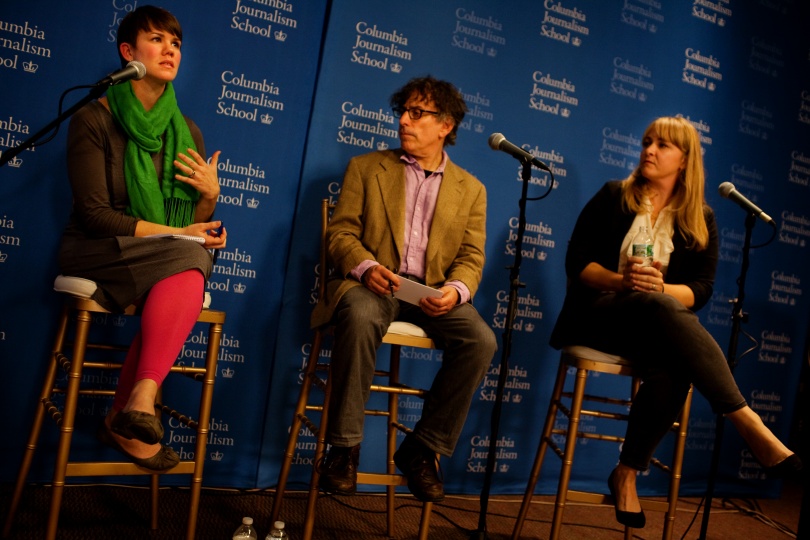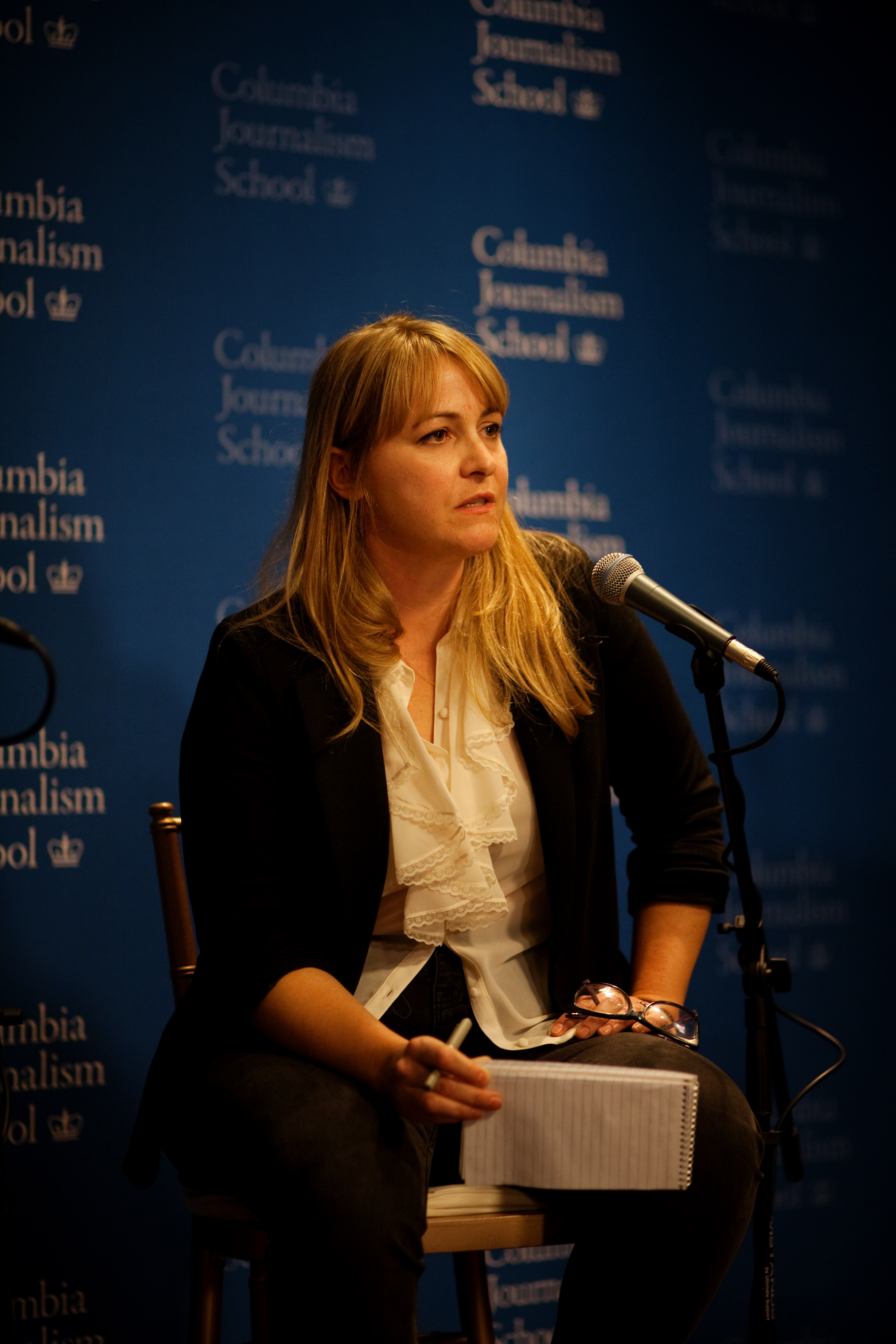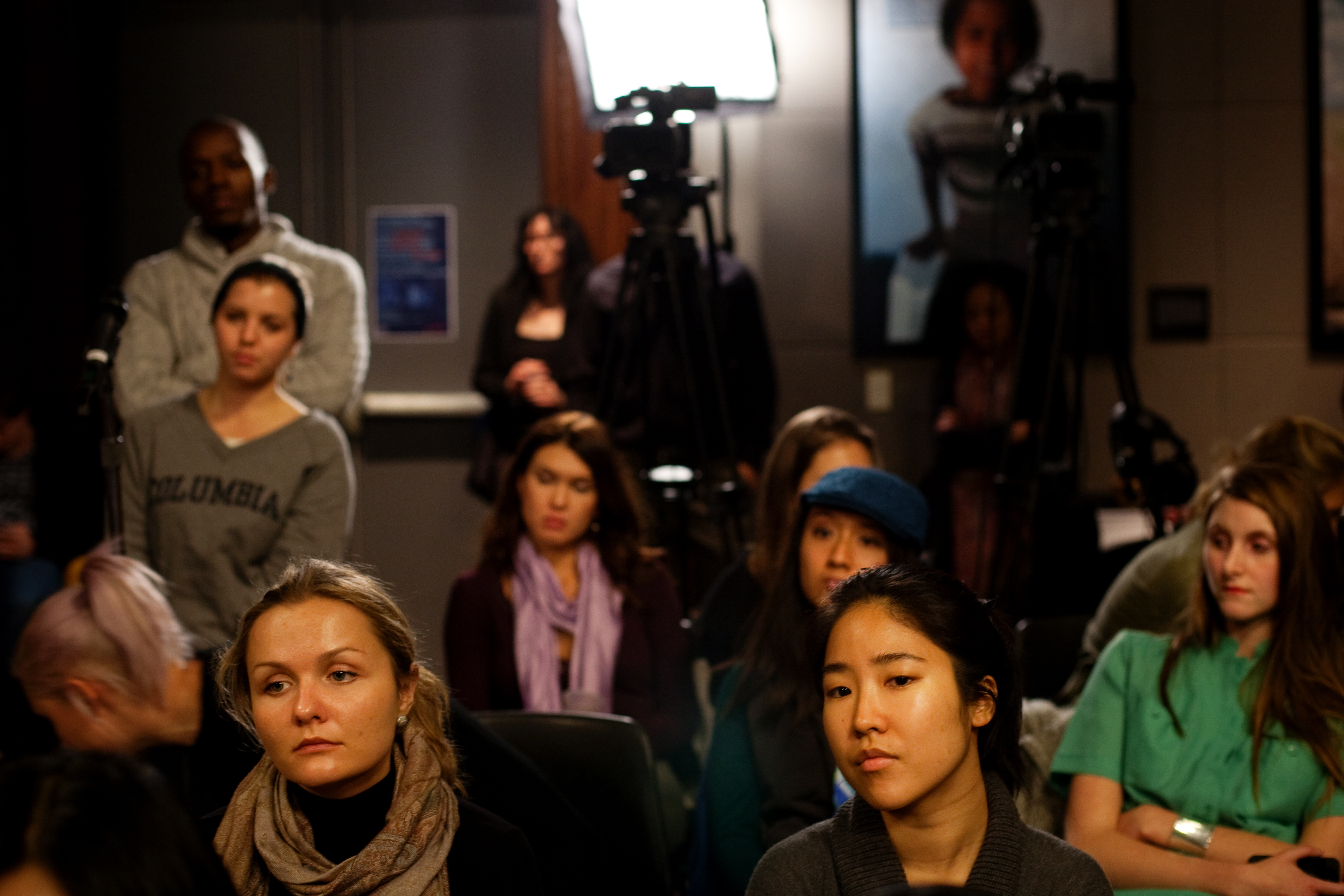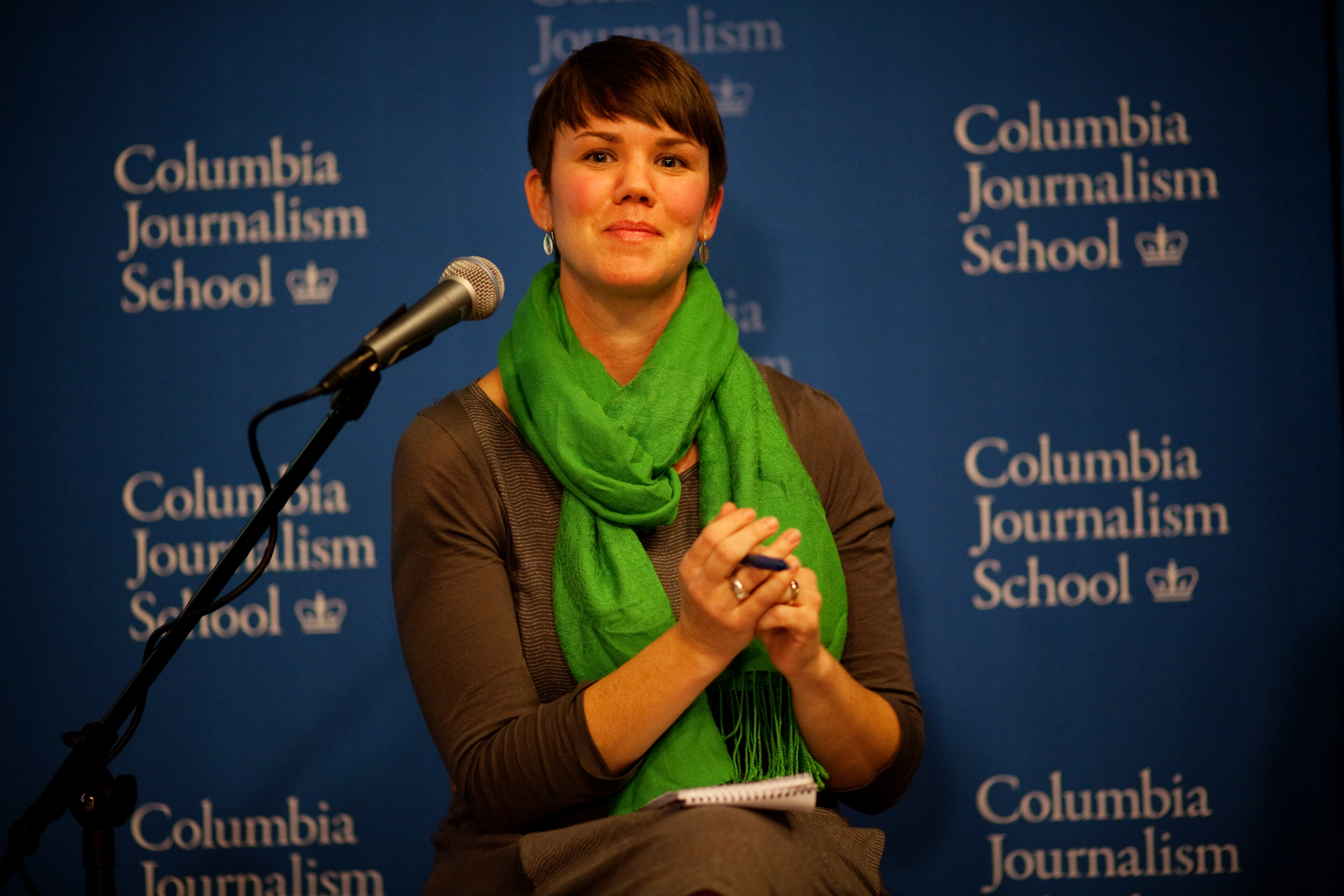Dissell & McEvers on Covering Violence
On November 5 at Columbia University, the Dart Center and the duPont Awards co-hosted a panel discussion with Kelly McEvers of NPR, and Rachel Dissell of The Plain Dealer of Cleveland, on covering violence and trauma in conflict zones, here and abroad.

In an intimate conversation that launched the Dart Center and DuPont Awards's two-part "Covering Violence" series, NPR’s Kelly McEvers and The Cleveland Plain Dealer’s Rachel Dissell discussed reporting on trauma domestically and abroad, and the personal toll that it can take. The discussion took place in front of a full house at the World Room at Columbia Journalism School, and was recorded in full by livestream (see below.)
“Should I quit? Can I quit?” asked Kelly McEvers, while describing the process of turning the microphone on herself for the first-person radio documentary she made with producer Jay Allison, Diary of a Bad Year. “You need to be alive to tell the story. But you need to be well enough to tell the story.” Reflecting on her traumatic experiences working in Syria and her recent decision to leave foreign reporting for a less dangerous job with NPR's Los Angeles bureau, McEvers offered that, “Sometimes you have to walk away from the biggest story of your career."
Watch the full event video below:
 For Dissell, who was one of the first reporters to bring the Steubenville rape case to the mainstream media's attention and has covered neglected rape cases in Cleveland extensively, the question of how much her reporting matters manifests not in the actions of the international community against brutal regimes but in the possibility of preventing future rapes by bringing perpetrators to justice.
For Dissell, who was one of the first reporters to bring the Steubenville rape case to the mainstream media's attention and has covered neglected rape cases in Cleveland extensively, the question of how much her reporting matters manifests not in the actions of the international community against brutal regimes but in the possibility of preventing future rapes by bringing perpetrators to justice.
The process of reopening rape cases, sometimes neglected for decades, is painful and arduous, especially for survivors who have buried the memories in order to move on with their lives. For both McEvers and Dissell, telling these stories requires humility and honesty, informing their interviewees that maybe the most they can do for them is to simply tell their story. "What you can offer them is authenticity," Dissell said.


Photos by Alan Chin for the Dart Center
































































































